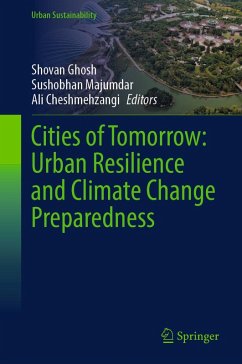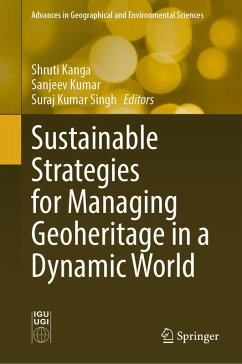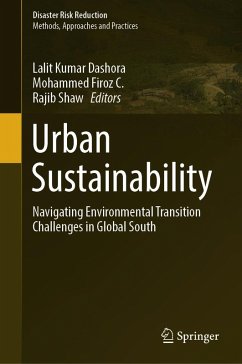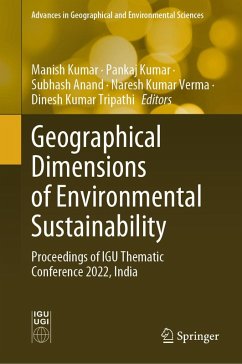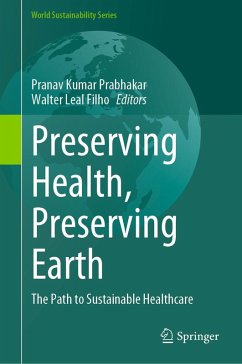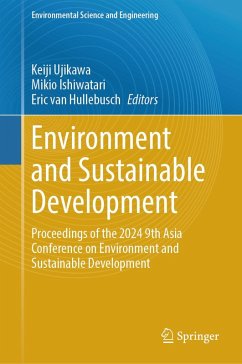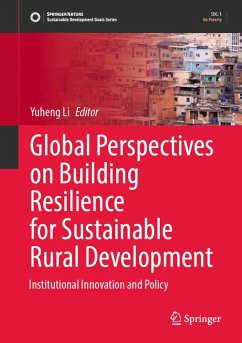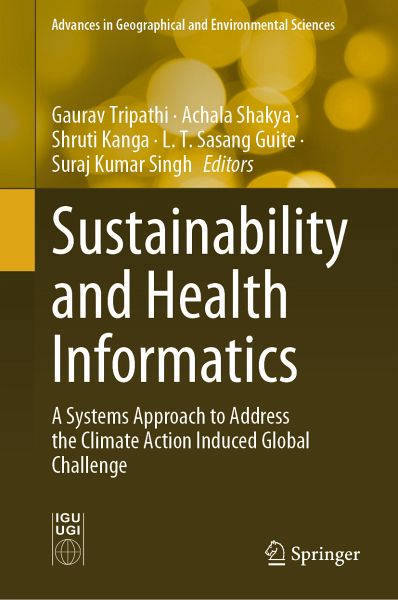
Sustainability and Health Informatics (eBook, PDF)
A Systems Approach to Address the Climate Action Induced Global Challenge
Redaktion: Tripathi, Gaurav; Singh, Suraj Kumar; Guite, L. T. Sasang; Kanga, Shruti; Shakya, Achala
Versandkostenfrei!
Sofort per Download lieferbar
120,95 €
inkl. MwSt.
Weitere Ausgaben:

PAYBACK Punkte
60 °P sammeln!
This book offers a comprehensive overview of the latest research, technologies, and applications of health informatics to promote sustainability and address climate change. The book focuses on the complex and multi-faceted challenge induced by climate change - a challenge that requires a systems approach at the global, national, and local levels. It explores the ethical and social implications of health informatics and climate change solutions, including issues related to data privacy, equity, and access to healthcare. The book primarily fills the gap in the available literature on the subject...
This book offers a comprehensive overview of the latest research, technologies, and applications of health informatics to promote sustainability and address climate change. The book focuses on the complex and multi-faceted challenge induced by climate change - a challenge that requires a systems approach at the global, national, and local levels. It explores the ethical and social implications of health informatics and climate change solutions, including issues related to data privacy, equity, and access to healthcare. The book primarily fills the gap in the available literature on the subject by bringing together the concepts, theories, and practical experiences of specialists and professionals in one volume. In addition, examples of successful health informatics and climate change solutions from around the world are showcased, including innovative approaches to data collection, analysis, and dissemination. The book is an essential resource for researchers, practitioners, and policymakers in the fields of health informatics, sustainability, and climate change.
The interconnected challenges of climate change and human health require a multidisciplinary and integrated approach that includes the use of health informatics tools and methods. By leveraging the power of informatics, we can develop innovative solutions to mitigate the impacts of climate change on human health and to build more resilient and sustainable communities.
The interconnected challenges of climate change and human health require a multidisciplinary and integrated approach that includes the use of health informatics tools and methods. By leveraging the power of informatics, we can develop innovative solutions to mitigate the impacts of climate change on human health and to build more resilient and sustainable communities.
Dieser Download kann aus rechtlichen Gründen nur mit Rechnungsadresse in A, B, BG, CY, CZ, D, DK, EW, E, FIN, F, GR, HR, H, IRL, I, LT, L, LR, M, NL, PL, P, R, S, SLO, SK ausgeliefert werden.



